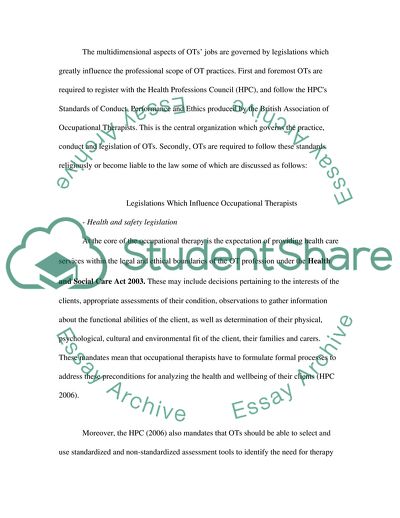Cite this document
(Legislations Influencing Occupational Therapists Coursework, n.d.)
Legislations Influencing Occupational Therapists Coursework. Retrieved from https://studentshare.org/health-sciences-medicine/1718607-discuss-aspects-of-legislation-with-reference-to-your-own-professional-or-regulatory-bodies-and-explain-how-these-may-be-applied-in-your-own-area-of-practice
Legislations Influencing Occupational Therapists Coursework. Retrieved from https://studentshare.org/health-sciences-medicine/1718607-discuss-aspects-of-legislation-with-reference-to-your-own-professional-or-regulatory-bodies-and-explain-how-these-may-be-applied-in-your-own-area-of-practice
(Legislations Influencing Occupational Therapists Coursework)
Legislations Influencing Occupational Therapists Coursework. https://studentshare.org/health-sciences-medicine/1718607-discuss-aspects-of-legislation-with-reference-to-your-own-professional-or-regulatory-bodies-and-explain-how-these-may-be-applied-in-your-own-area-of-practice.
Legislations Influencing Occupational Therapists Coursework. https://studentshare.org/health-sciences-medicine/1718607-discuss-aspects-of-legislation-with-reference-to-your-own-professional-or-regulatory-bodies-and-explain-how-these-may-be-applied-in-your-own-area-of-practice.
“Legislations Influencing Occupational Therapists Coursework”. https://studentshare.org/health-sciences-medicine/1718607-discuss-aspects-of-legislation-with-reference-to-your-own-professional-or-regulatory-bodies-and-explain-how-these-may-be-applied-in-your-own-area-of-practice.


